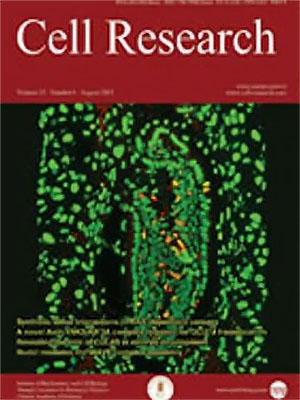Volume 9 Issue 3, September 1999: 189-200
ORIGINAL ARTICLES
Expression of a soluble form of CTLA4 on macrophage and its biological activity
GAO Yue Hua1, Pichao WANG1, Kuniaki TAKAGI2, Osamu SHIMOZATO3, Hideo YAGITA3, Tohru OKIGAKI4, Masatoshi MATASUMURA1,*
1 Institute of Applied Biochemistry, University of Tsukuba, Ibaraki 305-8572, Japan
2 Department of Environmental Biochemistry, School of Pharmaceutical Science, University of Shizuoka, Shizuoka 422, Japan
3 Department of Immunology, Juntendo University School of Medicine, Tokyo 113, Japan
4 Division of Molecular and Cell Biology, Shigei Medical Research Institute, Okayama 701-0202, Japan
Correspondence:
Interaction between cytotoxic T lymphocyte-asso- ciated antigen-4 (CTLA4, CD152) and B7 molecules (B7-1 and B7-2) is of importance in the cellular events of lymphocyte, including antigen-specific T-cell activation and induction of autoreactive T-cell. We describe here the first introduction of a murine soluble CTLA4 gene, CTLA4Ig, to Mm1 cells, a macrophagic cell line. CTLA4Ig was successfully expressed on Mm1 cells and the expressed CTLA4Ig was found to be functionally active in their binding to B7 molecules by flow cytometry and immunofl- uorescence studies. The biological activity of CTLA4Ig from the transfected Mm1 cells was studied and showed inhibitory activity on mixed lymphocyte culture. A high CTLA4Ig producing macrophagic cell line was obtained. As Mm1 cells were regarded as difficult for gene transfection and there had so far been no report on expression of CTLA4Ig gene on Mm1 cells, these results suggested that the CTLA4Ig expressing Mm1 cells could be useful for analysis of CTLA4 and B7 molecule interaction in both macrophage and T-cell.
FULL TEXT | PDF
Browse 2300


